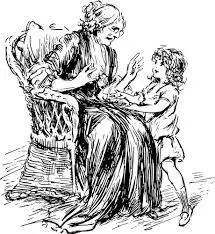The English Language consists of many forms of verbs with different functions. In this article we’re going to learn about Transitive Verb Examples.
A Transitive Verb is a verb that that transfers its inherent action to the object of the sentence.
Let us look at a few transitive verb examples along with sentences.
Transitive Verb Sentences
- The scientists have discovered a new species of animals.
- He needs to accept the award in order to let them know that he has forgiven them.
- She avoided the situation by not going to the party all together.
- She bent the plot of her novel a little bit to fit the publications demands.
- They dragged the ceremony for about five hours.
- The priest blessed the newly wed couple with some sweets.
- We can only arrest him after he admits to his crimes.
- The police chased the robber across the street.
- The child followed her mother around the house.
- She had to leave him alone for some time so that he could calm down.
- We need to hurry the process in order to meet deadlines.
- We have maintained a great professional relationship with each other.
- He loves to irritate his younger siblings.
- She has been judging him for the way he dresses.
- The teacher rudely mocked the child for not knowing the answer.
- He placed his son on his shoulders during the picnic.
- He swallowed his pride and apologized to everyone.
- The evil queen poisoned the apple.
- My mother tasted the dish and let me know if it was missing something.
- The detective questioned the culprit for hours.
- The lack of results puzzled him since he had put in so much effort.
- Everyone raised a toast to the couple at their wedding.
- My professor reminded me of my missing assignments.
- He greased the creaking door in order to fix it.
- She gripped his arm as tight as possible so that he wouldn’t fall.
- The movie theaters have limited seating to just fifty percent capacity.
- The situation she was pushed into was pretty dire but she handled it well.
- They froze the leftover food to save it for later.
- She changed her clothes before the next party.
- He recognized her even when she had her mask on.
- The mother has been watching her son from far.
- I was so hungry; I could smell the food from miles away.
- She usually toasts her bread before consuming it.
- In the story the princess possesses special powers.
- The father began to tickle his son during play time.
- The aunt lay her niece down to sleep while babysitting her.
- I clean my room every morning after waking up.
- He collected the fee for his classes.
Transitive Verb Examples
1. The scientists have discovered a new species of animals.
The transitive verb example in this sentence is ‘discovered’ and the object connected to it is ‘new species’.
2. He needs to accept the award in order to let them know that he has forgiven them.
The transitive verb example in this sentence is ‘accept’ and the object connected to it is ‘the award’.
3. She avoided the situation by not going to the party all together.
The transitive verb example in this sentence is ‘avoided’ and the object connected to it is ‘the situation’.
4. She bent the plot of her novel a little bit to fit the publications demands.
The transitive verb example in this sentence is ‘bent’ and the object connected to it is ‘the plot’.
5. They dragged the ceremony for about five hours.
The transitive verb example in this sentence is ‘dragged’ and the object connected to it is ‘the ceremony’.
6. The priest blessed the newlywed couple with some sweets.
The transitive verb example in this sentence is ‘blessed’ and the object connected to it is ‘the newlywed couple’.
7. We can only arrest him after he admits to his crimes.
The transitive verb example in this sentence is ‘arrest’ and the object connected to it is ‘him’.
8. The police chased the robber across the street.
The transitive verb example in this sentence is ‘chased’ and the object connected to it is ‘the robber’.
9. The child followed her mother around the house.
The transitive verb example in this sentence is ‘followed’ and the object connected to it is ‘her mother’.
10. She had to leave him alone for some time so that he could calm down.
The transitive verb example in this sentence is ‘leave’ and the object connected to it is ‘him’.
11. We need to hurry the process in order to meet deadlines.
The transitive verb example in this sentence is ‘hurry’ and the object connected to it is ‘the process’.
12. We have maintained a great professional relationship with each other.
The transitive verb example in this sentence is ‘maintained’ and the object connected to it is ‘a great professional relationship’.
13. He loves to irritate his younger siblings.
The transitive verb example in this sentence is ‘irritate’ and the object connected to it is ‘his younger siblings’.
14. She has been judging him for the way he dresses.
The transitive verb example in this sentence is ‘judging’ and the object connected to it is ‘him’.
15. The teacher rudely mocked the child for not knowing the answer.
The transitive verb example in this sentence is ‘mocked’ and the object connected to it is ‘the child’.
16. He placed his son on his shoulders during the picnic.
The transitive verb example in this sentence is ‘placed’ and the object connected to it is ‘his son’.

Image from Pxhere.
17. He swallowed his pride and apologized to everyone.
The transitive verb example in this sentence is ‘swallowed’ and the object connected to it is ‘his pride’.
18. The evil queen poisoned the apple.
The transitive verb example in this sentence is ‘poisoned’ and the object connected to it is ‘the apple’.
19. My mother tasted the dish and let me know if it was missing something.
The transitive verb example in this sentence is ‘tasted’ and the object connected to it is ‘the dish’.
20. The detective questioned the culprit for hours.
The transitive verb example in this sentence is ‘questioned’ and the object connected to it is ‘the culprit’.
21. The lack of results puzzled him since he had put in so much effort.
The transitive verb example in this sentence is ‘puzzled’ and the object connected to it is ‘him’.
22. Everyone raised a toast to the couple at their wedding.
The transitive verb example in this sentence is ‘raised’ and the object connected to it is ‘a toast’.
23. My professor reminded me of my missing assignments.
The transitive verb example in this sentence is ‘reminded’ and the object connected to it is ‘me’.
24. He greased the creaking door in order to fix it.
The transitive verb example in this sentence is ‘greased’ and the object connected to it is ‘the creaking door’.
25. She gripped his arm as tight as possible so that he wouldn’t fall.
The transitive verb example in this sentence is ‘gripped’ and the object connected to it is ‘his arm’.
26. The movie theaters have limited seating to just fifty percent capacity.
The transitive verb example in this sentence is ‘’ and the object connected to it is ‘’.
27. The situation she was pushed into was pretty dire but she handled it well.
The transitive verb example in this sentence is ‘’ and the object connected to it is ‘’.
28. They froze the leftover food to save it for later.
The transitive verb example in this sentence is ‘froze’ and the object connected to it is ‘the leftover food’.
29. She changed her clothes before the next party.
The transitive verb example in this sentence is ‘changed’ and the object connected to it is ‘her clothes’.
30. He recognized her even when she had her mask on.
The transitive verb example in this sentence is ‘recognized’ and the object connected to it is ‘her’.
31. The mother has been watching her son from far.
The transitive verb example in this sentence is ‘watching’ and the object connected to it is ‘her son’.
32. I was so hungry; I could smell the food from miles away.
The transitive verb example in this sentence is ‘smell’ and the object connected to it is ‘the food’.
33. She usually toasts her bread before consuming it.
The transitive verb example in this sentence is ‘toasts’ and the object connected to it is ‘her bread’.
34. In the story the princess possesses special powers.
The transitive verb example in this sentence is ‘possesses’ and the object connected to it is ‘special powers’.
35. The father began to tickle his son during play time.
The transitive verb example in this sentence is ‘tickle’ and the object connected to it is ‘his son’.
36. The aunt lay her niece down to sleep while babysitting her.
The transitive verb example in this sentence is ‘lay’ and the object connected to it is ‘her niece’.
37. I clean my room every morning after waking up.
The transitive verb example in this sentence is ‘clean’ and the object connected to it is ‘my room’.
38. He collected the fee for his classes.
The transitive verb example in this sentence is ‘collected’ and the object connected to it is ‘the fee’.
Transitive Verb Uses
The verb cannot stand alone in a sentence and needs to be attached to an object, or else the verb won’t make sense. In most cases of transitive verbs, the verb is something that happens to the object that follows it.
Read more: 70+ Interrogative Sentence Examples: What, How, When, Where to Use, Structure, Several Facts.









